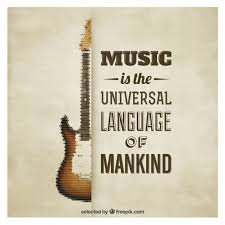Introduction

Music is a universal languagat speaks directly to our hearts and minds, transcending barriers of culture, age, and background. Think about the last time you heard a song that instantly lifted your mood or gave you the energy to get through a challenging moment. That’s the power of music – it doesn’t just entertain; it affects the way we feel, think, and act. Studies have shown that music can improve focus, boost productivity, and even boost creativity. Whether it’s an upbeat track that gets you pumped for a workout or a mellow tune that helps you relax after a long day, music is a versatile tool that can align your emotions with your goals. When used intentionally, it can become a secret weapon for personal and professional success. In this blog, we’ll discuss the science behind how music affects your brain and motivation. We’ll explore practical ways to incorporate music into your daily routine and show you how to create personalized strategies to stay motivated and on track. By the end, you’ll see how the right tunes can turn even the most daunting tasks into a manageable and even enjoyable experience.
The Science Behind Music and Motivation
How Music Affects the Brain
The Role of Dopamine: When you listen to music, your brain releases dopamine, often called the “feel good” chemical. The right song can cause a surge of dopamine, making you feel energized, focused, and ready to tackle challenges. This is why we often feel a sense of excitement or accomplishment when listening to music that resonates with us.
The Power of Rhythm and Beats: Music with a strong, steady rhythm can be in sync with your brain waves, increasing focus and energy. Faster tempos are particularly effective for boosting physical performance, while slower rhythms can help with relaxation or steady concentration. For example, during exercise, fast-paced beats can motivate you to move faster, while at work, instrumental music can help you stay focused without the distraction of lyrics.
####
 Case Studies and Research
Case Studies and Research
Improved Performance with Music: Studies have consistently shown that music enhances performance in a variety of activities. For example:
Athletes who listen to fast-paced music often report better stamina and motivation during workouts.
Students who study with classical or ambient music have reported better retention and focus.
People working in creative fields have found that music can help them think more innovatively and overcome mental blocks.
Famous anecdotes:Many successful people attribute a part of their motivation to music. For example:
Olympic swimmer Michael Phelps was known to listen to hip-hop tracks to energize himself before races.
Author Stephen King often writes while listening to rock music, claiming it helps him channel his creativity.
Tech entrepreneur Elon Musk has shared how certain songs inspire and energize him during long work sessions.
By understanding these scientific principles and real-world examples, we can see that music isn’t just entertainment—it’s a tool for improving our mood, sharpening our focus, and boosting our motivation.
Choosing the Right Type of Music for Your Goals

Different Genre for Different needs:
The type of music you listen to can significantly impact your ability to achieve specific goals. By understanding how different genres affect your emotions and energy levels, you can tailor your playlist to your needs.
—
#### **Different genres for different needs**
1. **Uplifting music for physical activity or overcoming procrastination**
– High-energy genres like pop, electronic or hip-hop are great for physical activities like working out or doing household chores. The fast tempo and rhythmic beats get your heart rate up and make mundane tasks more engaging.
– Example: Tracks like Survivor’s “Eye of the Tiger” or Mark Ronson’s “Uptown Funk” can boost your motivation to keep going.
2. **Instrumental or ambient music for meditation and deep work**
– When you need to focus or work on tasks that require deep thinking, instrumental or ambient music is ideal. Without lyrics to distract you, this kind of music helps keep you focused and creates a calming atmosphere.
– Genres like classical, lo-fi, or ambient soundscapes work well for studying, writing, or meditation.
– Example: Try Beethoven’s symphonies or modern lo-fi playlists on platforms like Spotify.
3. **Inspirational songs for emotional uplift**
– Sometimes, listening to powerful lyrics can be the emotional push you need. Songs that talk about perseverance, self-belief, or overcoming challenges can be inspiring when you’re feeling down.
– Example: Tracks like Rachel Platten’s “Fight Song” or Kanye West’s “Stronger” can boost your confidence and help you through tough times.
—
#### **EXPERIMENTATION IS KEY**
– Everyone responds to music differently, so it may take some trial and error to find what works for you.
– Try listening to different genres of music during different activities—pop for working out, jazz for relaxing, or a soundtrack for focusing.
– Pay attention to how certain songs make you feel. Do they energize you, calm you down, or distract you?
– Create a few playlists that fit your needs. For example, create a “Workout Power” playlist, a “Focus Zone” playlist, and a “Feel-Good Boost” playlist.
By experimenting with different kinds of music, you’ll find the perfect soundtrack for every moment of your day, helping you stay motivated and on track with your goals.
**How to incorporate Music into your routine**

1. **Start your day with energizing music**
Start your morning with a playlist that will lift your mood and energize you for the day ahead. Choose songs with uplifting rhythms and positive vibes to create an environment for productivity.
2. **Use music to beat afternoon fatigue**
When you feel your energy dropping in the afternoon, listen to motivational tracks. Choose tunes with lively beats to help recharge your focus and get tasks done.
3. **End the day with relaxing sounds**
Relax by listening to calming music or nature sounds in the evening. This can help you relax, reflect on your day, and prepare for a good night’s sleep.
By incorporating music into your routine, you can improve your mood, increase productivity, and maintain balance throughout the day.
**Creating your personal motivational playlist**
1. **Understand your emotional and physical needs**
To focus, choose instrumental or ambient tracks; for a workout, choose high-energy beats. Tailor your playlist to your task.
2. **Mix and match**
Combine different genres and tempos to keep your playlist exciting and versatile. This variety prevents monotony and ensures that it caters to different situations and moods.
3. **Update regularly**
Keep your playlist fresh by adding new tracks and removing overplayed ones. This not only maintains its appeal but also keeps you motivated and engaged.
Whether you are working, going to the gym or relaxing after a long day, a personal playlist can be your secret weapon to stay motivated.
**Practical tips for using music effectively**

1. **Use headphones for better focus and immersion**
Headphones can help you create a more personal, immersive experience. They block out external distractions, allowing you to better focus on the task at hand.
2. **Avoid music with distracting lyrics during tasks that require high concentration**
For tasks that require deep focus (e.g., studying or writing), opt for instrumental music or ambient sounds. Lyrics can interfere with cognitive processing and reduce productivity.
3. **Set specific periods for listening to avoid distractions**
Use time management techniques like the Pomodoro method, where you listen to music during a 25-minute focus session followed by a 5-minute break. This ensures that music enhances productivity rather than distracts.
4. **Take advantage of apps like Spotify or YouTube for curated motivational playlists**
Take advantage of platforms like Spotify or YouTube, which offer pre-made playlists tailored to different moods and activities. This can save time and help you find the perfect soundtrack quickly.
By integrating these strategies, music can become a powerful tool for boosting productivity, focus, and motivation throughout your day.
Limitations of Music as a Motivational Tool
Scenarios Where Silence May Be More Beneficial
Music can be a great motivator, but there are also times when silence is more productive. For tasks that require deep focus, such as analytical thinking, problem-solving, or creative brainstorming, silence allows for uninterrupted cognitive processing. In these moments, music can interrupt your flow and hinder mental clarity.
Balancing Music with Other Motivational Strategies
While music can boost energy and mood, it’s important to balance it with other motivational practices. Techniques like mindfulness or meditation help center your thoughts, while exercise boosts natural energy and improves focus. Incorporating different strategies helps prevent overreliance on music and ensures you’re taking the best approach to the task at hand.
A balanced combination of music and other motivational tools can boost productivity, but understanding when to switch to silence or other techniques is crucial to maintaining overall efficiency and well-being.
**Conclusion**
Music can be a powerful tool for motivation, helping to improve your mood, boost productivity, and support your journey toward achieving goals. By creating personalized playlists, balancing music with other motivational strategies, and knowing when to embrace silence, you can harness music’s potential to maximize focus and energy.
I encourage you to experiment with different genres and songs to create a playlist that works best for you. Track how music impacts your motivation and share your experiences with others.
**What is your favorite motivational song? Share it in the comments!**
